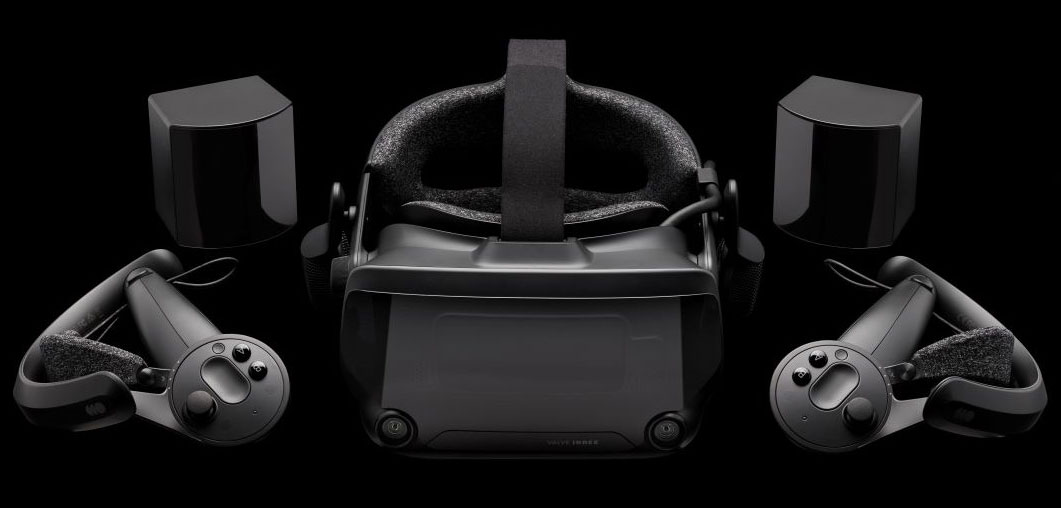Someone who has never seen Black Mirror wants to make lucid dreaming 'the ultimate VR experience' with dubious tech
If it works, we might have to redefine what we mean by a "gaming experience". But that's currently a very, very big if.

Lucid dreams are defined as the experience of knowing you are dreaming while you are asleep, and can range from the sublime to the genuinely terrifying. According to the CEO of new startup Prophetic, its latest project aims to "detect when dreamers are in REM to induce and stabilize lucid dreams" via a wearable device they call "The Halo". And if that doesn't sound like a cyberpunk future developing in front of our very eyes, I'm not sure what does.
Vice's Motherboard recently interviewed the CEO of Prophetic, Eric Wollberg and CTO Wesley Louis Berry III about this project and the ramifications of such a potentially world-changing technology. Prophetic has recently entered a partnership with the Donders Institute, a research centre for neuroscience and cognition based in a university in the Netherlands, and this has allowed the company access to a huge dataset of electroencephalogram (EEG) and functional magnetic resonance imaging (fMRI) observations of people who lucid dream.
This data is being used to help research and develop a technique referred to as "transcranial focused ultrasound", or TUS, which is designed to use "focussed ultrasound processes" through a wearable device to tell when the brain is lucid dreaming. The company hopes that the development of this technique will eventually allow the device to interact with the wearer's neural activity and induce a lucid dream on-demand.
Wollberg and Berry are quick to tout the supposed benefits of lucid dreaming, from helping with PTSD all the way through to inducing an experience that sounds remarkably close to gaming. "You can fly, you can make a building rise out of the ground, you can talk to dream characters, and you can explore". Blimey.
It's important to note that devices that purport to induce lucid dreaming through non-invasive methods do already exist, albeit with dubious effectiveness. Prophetic seems to be banking on TUS technology to create a much more powerful result, although as things stand The Halo still looks to be early in its research phase.
The current model is only capable of reading EEG data of users through this method, not manipulating it, although the company aims to further develop the device using machine-learning models.
These models will be based off of the new datasets, and Prophetic seems hopeful that this may eventually enable The Halo to target and alter neural activity in order to create the desired effect of lucid dreaming on-demand. This seems like an almighty leap into the unknown, as there's a huge difference between reading brain activity and manipulating it to create a repeatable result.
Keep up to date with the most important stories and the best deals, as picked by the PC Gamer team.

Best VR headset: which kit should you choose?
Best graphics card: you need serious GPU power for VR
Best gaming laptop: don't get tied to your desktop in VR
Regardless, the implications here are massive, and while it's fun to think about the potential game-like experiences that something like The Halo could create, there are obvious ethical and moral concerns at play here. Creating a device that directly interacts with the human brain seems to be a goal that more and more companies are pursuing, and while the entertainment and potential therapeutic uses are obvious it wouldn't be a huge stretch to imagine that this sort of breakthrough could be adapted for more nefarious purposes.
Prophetic seems keen to head off those concerns before they've begun, with a technology roadmap that devotes a section to "Safety, Privacy and Ethics", although it seems rather short given all of the potential ethical issues that seem likely to arise.
Assuming The Halo or devices like it eventually become capable of reliably inducing lucid dreaming (and it's a big assumption, we'll grant you), it's unclear what sort of approval would be required before a product capable of these results would be deemed safe to use by the general public. Colour us curious, of course, but a brave new world of brain-altering technology does seem to be knocking on the doors of possibility at some point in the near future. How this translates into how we view ourselves and our relationship with our devices remains to be seen.

Andy built his first gaming PC at the tender age of 12, when IDE cables were a thing and high resolution wasn't—and he hasn't stopped since. Now working as a hardware writer for PC Gamer, Andy's been jumping around the world attending product launches and trade shows, all the while reviewing every bit of PC hardware he can get his hands on. You name it, if it's interesting hardware he'll write words about it, with opinions and everything.

